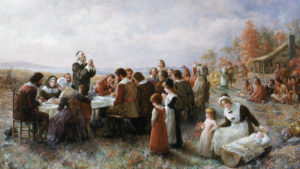2 Corinthians 8:1–91NIV New International Version Translations
1 And now, brothers and sisters, we want you to know about the grace that God has given the Macedonian churches. 2 In the midst of a very severe trial, their overflowing joy and their extreme poverty welled up in rich generosity. 3 For I testify that they gave as much as they were able, and even beyond their ability. Entirely on their own, 4 they urgently pleaded with us for the privilege of sharing in this service to the LORD’s people. 5 And they exceeded our expectations: They gave themselves first of all to the LORD, and then by the will of God also to us. 6 So we urged Titus, just as he had earlier made a beginning, to bring also to completion this act of grace on your part. 7 But since you excel in everything-in faith, in speech, in knowledge, in complete earnestness and in the love we have kindled in you-see that you also excel in this grace of giving. 8 I am not commanding you, but I want to test the sincerity of your love by comparing it with the earnestness of others. 9 For you know the grace of our LORD Jesus Christ, that though he was rich, yet for your sake he became poor, so that you through his poverty might become rich.
 Background
Background
THANK YOU is an expression of gratitude or politeness, in response to something done or given. Thank you was shortened from the phrase “I thank you”. Derived from the old English “thancian” – related to Old Frisian “thankia” Old Norse “thakka” Old Saxon, Old High German “thancōn” leading to the middle German “danken” and the modern English “thank”. As the holiday “Thanksgiving” is upon us, it is a good time to reflect on things to be thankful for and how we express that gratitude today.
In the letter called 2 Corinthians, it is thought to be mostly comprised of the last of four letters written to the church in Corinth. The letter is a deeply personal letter — a response to the complex history of the Apostle Paul and the church he established there. The circumstances behind this letter reveal the difficult, often painful realities of the life of a minister. More than any of his other letters, 2 Corinthians shows us the heart of Paul as a pastor. The Apostle Paul reminds them of charitable work for the poor they have done. (1-6) Paul enforces this by reminding them of their gifts, and by the love and grace of Christ they have shared. (7-9) By their willingness they have encouraged everyone around also to do this type of good work.
The Apostle Paul tells them that the grace of God must be at the root and the ongoing source of all the good that is in us, including the good done by us, at any time. It comes from the Grace and favor of our God. If we are made useful to others, and move forward to do any good work, it is because of God, not our own character. He commends the charity of the Macedonians. The Macedonians had sever needs themselves but still supported Paul’s ministry to the point of even praying that he would accept their limited generosity.
Whatever we use or set aside for God’s purpose, it is only giving Him what is already His. All we give for charitable uses, will not be accepted by God, or even turned to our advantage, unless we first give ourselves to the Lord. By ascribing all good works to the grace of God, we not only give the glory to Him but also show other people where their strength should be placed. Abundant spiritual joy increases in our own hearts when the work and labor of love is involved. How different this from the conduct of those who will never join in any good works, unless they are urged into it!
Faith is the root of this generous spirit. Without faith it is not possible to please God, (Hebrews 11:6) so those who abound in faith, will abound in other graces and good works. All of this becomes visible to others through love. Great talkers are not always the best doers; but the Corinthians were diligent in their generosity, as well as knowledgeable about Paul’s teachings and about Christ. To this list of good things, of Christian character that Corinthians had, the Apostle Paul wants them to add this grace, “to abound in charity to the poor.” The best argument for Christianity and its duties come from the grace of God and the love of Christ. Although Christ was rich, being God, equal in power and glory with the Father, He not only became man for us, but He also became poor. Christ emptied Himself, as if it were, to pay the ransom for our souls by His sacrifice on the cross.
Items for Discussion
- What ways do you express your thankfulness on Thanksgiving?
- Are there traditions that your family has for this holiday?
- Why are the traditions of a family so important to sustain and pass on to future generations?
- How do you think God measures the acceptability of a person’s gift?
- Why is it important that not only God but also people around us know we are we are generous on God’s behalf?
- What effect do you think Paul wanted from these gifts over and above helping the poor?
- In what specific ways have you experienced God being gracious to you?
Discussion Challenge
- What activities would you expect to see in a thankful generous church?
- 1NIV New International Version Translations
